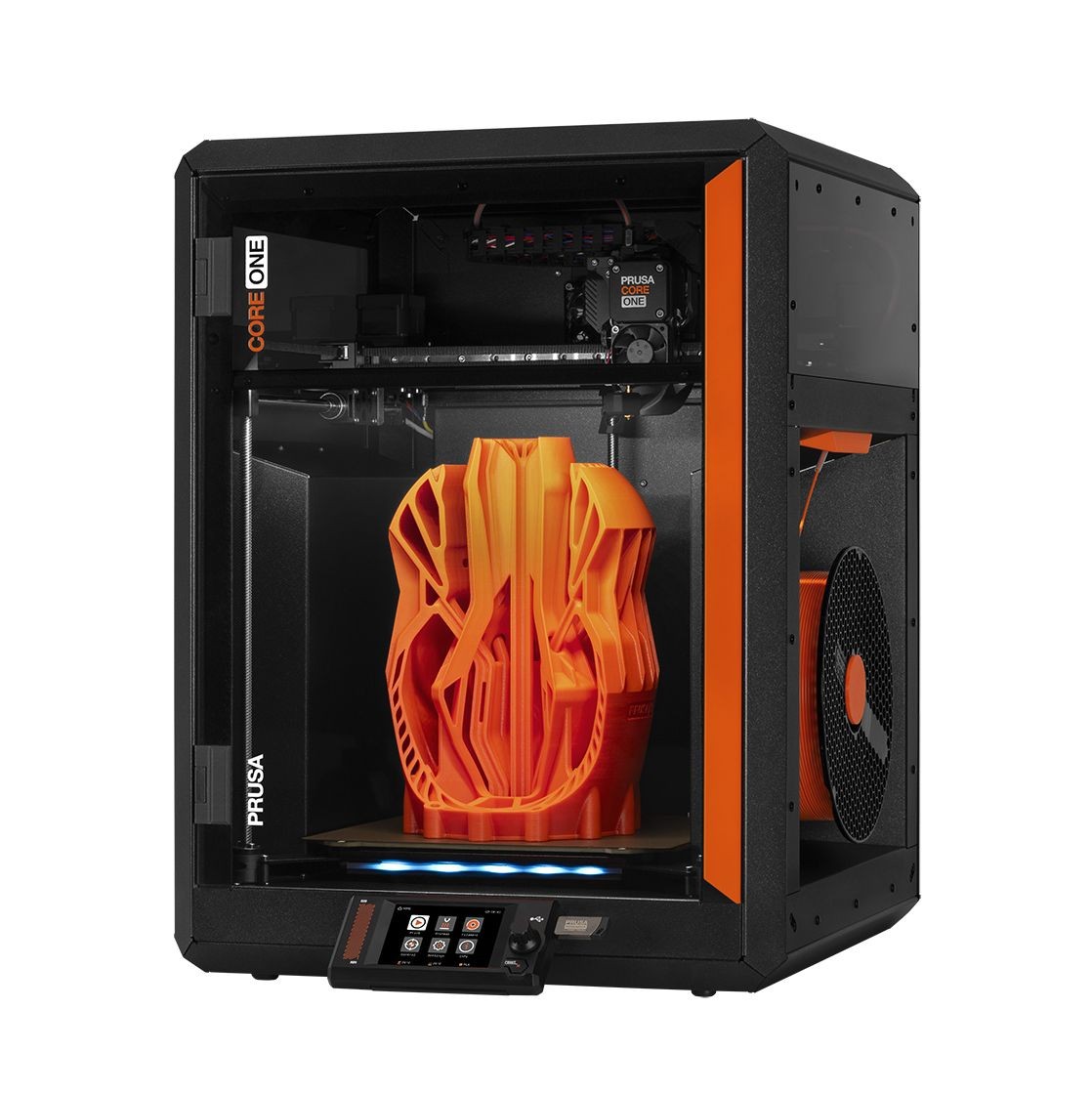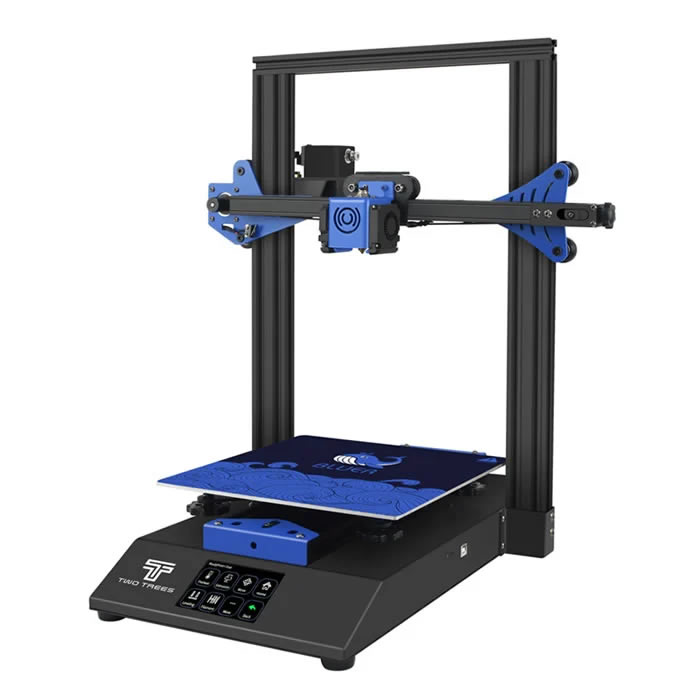Compare Core One vs Bluer
Comparison between the best 3D printers
Choose the best 3D printer at the best price. The cheapest 3D printers are here.
Buy a 3D printer here with 3D Fila.
 |
 |
|
| Model | Core One |
Bluer |
| Printing Material | Filament | Filament |
| Buy Filament for Prusa Core One | Buy Filament forTwoTrees Bluer | |
| Estimated price | $1200,00 | $169,00 |
| Manufacturer | Prusa | TwoTrees |
| Release Year | 2025 | 2019 |
| Print Volume [mm] | 250x220x270 | 230x230x280 |
| Printer Size [mm] | 385x340x620 | 400x410x520 |
| Weight [kg] | 14 | 8 |
| Power Loss Recovery | YES | YES |
| Enclosed printer | YES | NO |
| Bed Leveling | Automatic | Manual |
| Filament End Sensor | YES | YES |
| Bed type | Heated | Heated |
| Power supply system | Direct Drive | Bowden |
| Standard nozzle | 0,4 | 0,4 |
| Maximum Nozzle Temperature [°C] | 300 | 260 |
| Maximum Bed Temperature [°C] | 120 | 100 |
| Maximum printing speed [mm/s] | 500 | 200 |
| Filament holder | YES | YES |
| Camera for supervision | NO | NO |
| Recommended filaments | PLA, TPU, TPE, HIPS, ABS, PETG, WOOD, PC, PA, PVA, ASA | PLA, PETG |
| Recommended slicers | Cura, Prusa Slicer, Orca | Cura, Simplify, Slic3r |
| Maximum Resolution [mm] | 0,01 | 0,1 |
| Processor | xBuddy 32 bit | MKS Robin Nano V1.2 + TMC2208 |
| Display | Touchscreen 3,5'' | Touchscreen TFT 3,5'' |
| Power Supply | 240 W | 240W |
| Connectivity | SD | SD / USB |
| Operating systems | Windows, Linux e Macbook | Windows, Mac, Linux |
| Date of registration in the system | 2024-11-27 | 2021-09-20 |
| Release date | 2025 | 2019 |
| Extra features | The Prusa Core One is a CoreXY 3D printer featuring a robust steel frame, a 3.5" touchscreen, and a heated chamber for technical filaments. It offers 360° cooling for improved print quality and supports upgrades from the MK4S model. With a compact design, a print volume of 270x250x220 mm, and compatibility with the MMU3 for multi-color printing, it stands out for its ease of maintenance, precision, and speeds up to 260% faster than the MK3S+. | The Bluer offers interesting features such as automatic bed leveling, a 3.5-inch color touchscreen for easy operation, and a filament sensor to prevent print failures. It has a robust metal extruder and a generous 230 x 230 x 280 mm print volume, suitable for a variety of projects. The community mentions improvements made by Two Trees based on feedback, increasing its reliability. |
| Support for multiple colors and materials (AMS and CFS) | YES | NO |
Notes * |
||
| Cost-benefit | 7 / 10 | 7 / 10 |
| Hardware | 5.4 / 10 | 2 / 10 |
| Tela | . | . |
| Print volume | 3 / 10 | 3 / 10 |
| Performance | 4 / 10 | 2 / 10 |
Conclusion |
| In comparing the Core One and Bluer 3D printers, several key factors highlight their strengths and weaknesses. The Core One, manufactured by Prusa, is characterized by its significantly higher price point but compensates with advanced features and capabilities suited for serious users. Its automatic bed leveling, enclosed design, and larger print volume make it a good fit for a wider range of materials, including advanced filaments like PC and PA. The printer also boasts impressive specifications such as faster maximum print speeds and higher maximum temperatures for both the nozzle and the heated bed, which enhance its versatility and reliability. Moreover, it supports multi-color printing through compatibility with the MMU3, an appealing feature for those looking to create complex prints. Conversely, the Bluer 3D printer, produced by TwoTrees, is positioned as a budget-friendly option. While it lacks some of the advanced features of the Core One—such as automatic recovery and an enclosed design—it still offers essential functionalities, including manual bed leveling and a filament sensing mechanism. Its print volume, while slightly smaller, remains adequate for a variety of projects, and it is optimized for simplicity and ease of use. While both printers score similarly in cost-benefit analysis, it is clear that the Core One is designed for users who prioritize performance, print quality, and flexibility, making it suitable for more demanding applications. On the other hand, the Bluer is better suited for hobbyists or beginners who value affordability and straightforward operation without the need for advanced features. Ultimately, the choice between these two printers will depend on the user’s specific needs, budget, and intended usage. For more serious projects requiring high precision and material versatility, the Core One stands out as the stronger contender. However, for cost-conscious users seeking a reliable entry-level printer, the Bluer still provides solid performance without breaking the bank. |

